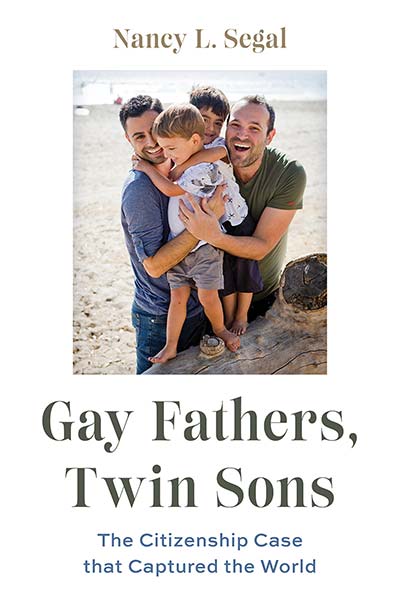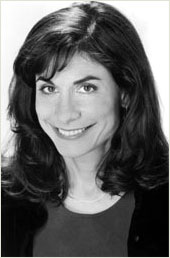 The January 2018 headline story in the Los Angeles Times was riveting. Andrew from the United States and Elad Dvash-Banks from Israel married in Canada in 2010 when gay couples could not marry in these countries. The couple conceived fraternal twins, Aiden and Ethan, with a Canadian surrogate by means of egg and sperm donation. The two boys were born just four minutes apart. Aiden was conceived with a donated egg and Andrew's sperm cell, and Ethan was conceived with a donated egg (from the same woman) and Elad's sperm cell.
The January 2018 headline story in the Los Angeles Times was riveting. Andrew from the United States and Elad Dvash-Banks from Israel married in Canada in 2010 when gay couples could not marry in these countries. The couple conceived fraternal twins, Aiden and Ethan, with a Canadian surrogate by means of egg and sperm donation. The two boys were born just four minutes apart. Aiden was conceived with a donated egg and Andrew's sperm cell, and Ethan was conceived with a donated egg (from the same woman) and Elad's sperm cell.
Andrew and Elad wished to raise their children in the United States, but when they arrived at the American Consulate in Toronto to apply for citizenship, a staff member fired off a series of “shocking” and humiliating questions, and informed the couple of her authority to require a DNA test to determine each parents’ relatedness to each twin—she warned that without these tests neither twin would be granted US citizenship. Andrew and Elad knew which twin each had fathered and had planned on keeping this information confidential. They knew this because DNA analyses had already been performed, but the consulate insisted that these costly tests be repeated using their designated laboratory.
Having no alternative, DNA testing was arranged, and results submitted to the consulate. Soon, two envelopes arrived at their home, bearing both welcome and dreaded news: United States citizenship was offered to Aiden, whose father was a US citizen, but not to Ethan, whose father was Israeli. And, thus, their ground-breaking legal journey began. The couple’s high-profile lawsuit nearly reached the US Supreme Court, capturing worldwide attention along the way.
Nancy Segal brings the story to life through firsthand accounts of each father’s life history and analysis of the legal intricacies that threatened to deny US citizenship to one of their twin sons.
